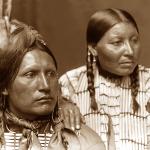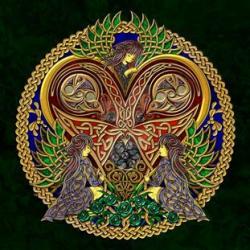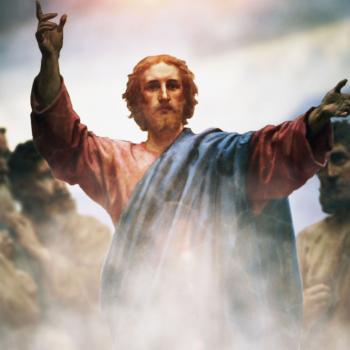As I was putting up some Halloween decorations are noticed that some of my neighbors seemed a little shocked at my doing so. You see, its no secret in the neighborhood that I am a Christian writer and blogger, and like many places in the south, Halloween and Jesus just don’t go together. On top of that, my wife is a huge Harry Potter fan, so our house is adorned with colors from the different houses in the movie. So maybe to the Bible Belt Christian, we are sorcerers and devil worshippers, who knows. But those strange looks are nothing compared to some of the things that have been said about Halloween from the pulpit.
Anti-Halloween Fervor from the Pulpit
Christianity, especially in the United States has a tense relationship with Halloween. In 2017, a former Satanist, turned Christian pastor, John Ramirez spoke on the CBN network about Christians and Halloween. He adamantly declared that celebrating Halloween is a curse on Christian families. Ramirez stated that he celebrated Halloween as a “a general to the kingdom of darkness in witchcraft.”
A CBS poll at the time also stated that 87% of Christians felt that celebrating Halloween in any form was not acceptable. 13% stated Involvement in Halloween was acceptable. So why is there such anti-Halloween attitudes towards in modern Church?
Reasons Christians Should Not Celebrate Halloween?
J. Kerby Anderson from fillthevoid.org gave 10 reasons why Christians shouldn’t celebrate Halloween. Three of those we will discuss here. These are the feelings of many in the modern church and although faulty, require discourse.
-
October 31st has long been known as “The Festival of the Dead.” The Celtic tribes and their priests the Druids celebrated this day as a marker for the change from life to death.
First, the Celts, Christian or Pagan never referred to October 31 as the “Festival of the Dead”. It was referred to as Samhain which was a festival marking the end of the harvest season and the beginning of winter, or what was referred to as the “darker half” of the year. What is true in this statement is that this festival does have Celtic Pagan origins. But the same can be said for Christmas and Easter as former pagan holidays.
The reality is that people who became Christians kept their pagan festivals and converted them into Christian holy days. So why do Christmas and Easter get a break and Halloween does not? This is because all things Celtic had been considered heresy or unchristian by the reformers. The Celts were considered the “back woods” superstitious people and as such their holidays were not considered “equal” no matter how Christianized they became.
Finally, The Catholic Church did the same thing with Halloween that was done with Christmas and Easter, Christianizing it into All Saints Day. So, technically it is a Christian holiday, if we go off the Christmas and Easter standard.
-
Halloween today is performed usually by adherents of witchcraft who use the night for their rituals. Witches celebrate Halloween as the “Feast of Samhain,” the first feast of the witchcraft year. Being a festival of the dead, Halloween is a time when witches attempt to communicate with the dead through various forms of divination.
I think someone has been watching too many Halloween movies… Especially for someone who says we shouldn’t celebrate the holiday… As stated before, Samhain is a Celtic holiday, not a witch holiday. Secondly, just like Christianity, other belief structures have taken on Celtic holidays as well. And anyone who has studied or just hung out with actual professing witches know that Halloween isn’t the only day the practice their faith. They don’t “need” Halloween to do this. Some witches may also celebrate Yule, which occurs during Christmas, should we abandon Christmas as well? Ridiculous. Maybe stop letting what others do dictate what you do. Lastly I don’t know if witches communicate with the dead through divination, and frankly I don’t care. Again, I don’t let what other people do dictate what I do.
-
In some witchcraft covens, the closing ritual includes eating an apple or engaging in fertility rites. In the Bible (Genesis 3), eating a piece of fruit brought sin and death into the world. In witchcraft, eating an apple is symbolic of bringing life. The practice of bobbing for apples brings together two pagan traditions: divination and the fertility ritual.
This has got to be the stupidest thing I have heard in my theological life! This is the typical bend the Bible to meet my obscure argument. First off, in Witchcraft the Apple is used more in honoring deities and for abundance, prosperity, luck and balance (Upshaw, 2015). So we are already at a bad start. Secondly, and more importantly, eating the apple did not bring sin into the world, an act of disobedience did that. A piece of fruit is not responsible for sin and death, humans are. Its not the Apples fault, its our fault as humans. Apples aren’t “witchcraft” its what they are used for that decides that. So if you are a Christian the answer is simple, don’t use apples for the purpose of spells. That this has to be said further proves the brittleness of theological training in the United States.
And since we are on the topic of the Bible I have a verse for this occasion as well: Colossians 2:16
Therefore let no one judge you by what you eat or drink, or with regard to a feast, a New Moon, or a Sabbath.
New Christians at the time of this letter were coming out of Greek and Roman religions, and Paul makes it clear here that the bringing of their festivals and incorporating them into their new faith was not to be judged. Notice the incorporation of Jewish (Sabbath) and Pagan (New Moon, feasts) into the verse. Christ is a God of all cultures. Like everything in our faith, it has always been about intent. And if the intent of Halloween is honorable to God, we don’t get to judge it because of its history. Its interesting that we treat humans the same way we treat these festivals, by their pasts. Christians, we have a lot of work to do.
Halloween to the Celtic Christian is About Remembering the Past, and Looking Toward the Future
To the modern Celtic Christian, Samhain or Halloween, celebrates those who have passed on while looking forward to the excitement of the new that God is bringing. The family’s ancestors were honored and invited home whilst harmful spirits were warded off. People wore costumes and masks to disguise themselves as harmful spirits and thus avoid harm. Bonfires and food played a large part in the festivities. The bones of slaughtered livestock (not sacrificed to idols) were cast into a communal fire, household fires were extinguished and started again from the bonfire. Food was prepared for the living and the dead, food for the ancestors who were in no position to eat it, was ritually shared with the less well off.
While some of the Pagan traditions of Halloween, like wearing costumes and passing out candy persist in society, we should not throw the holiday out or declare it heresy. Halloween is about celebration of the living and honoring those who have gone to heaven, I don’t see the heresy in that. I don’t see Christmas getting that treatment with its wreaths, trees, and yule tide. If Halloween is heresy, so too is Easter and Christmas. Or maybe instead of focusing on what is and isn’t heresy, we sit back, enjoy the Harry Potter decorations, and let our children celebrate a fun holiday.











